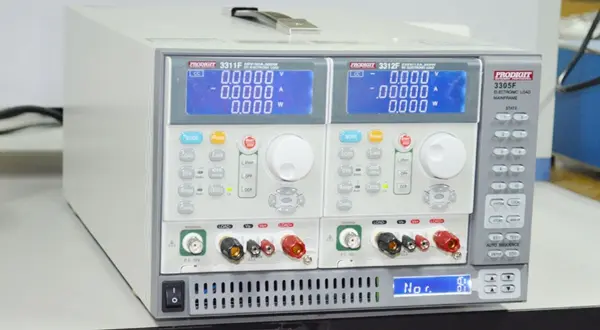
Introduction to FCC SDoC and FCC ID Certification
In the U.S. market, any electronic device must comply with the electromagnetic compatibility and radio frequency spectrum management regULations set by the Federal Communications Commission (fcc) to be legally sold and used. FCC certification is an authoritative acknowledgment of the device's compliance, aimed at protecting the public from harmful interference and ensuring the efficient use of the radio spectrum. This article focuses on the two primary certification methods within the FCC certification system—FCC SDoC (Supplier’s Declaration of Conformity) and FCC ID—and provides a detailed explanation of their differences and applicable scopes.

fcc sdoc: A Self-Declaration System for Non-Wireless Products
Definition and Features:
FCC sdoc (Supplier's Declaration of Conformity) is a compliance assessment mechanism based on self-declaration. For products certified via the SDoC route, manufacturers or suppliers must ensure that their products meet the relevant FCC regulations and technical standards and are responsible for preparing detailed conformity declaration documents. This process typically involves internal testing or verification tests by third-party laboratories, but the ultimate responsibility lies with the manufacturer, who must publicly declare that the product complies with FCC regulations.
Applicable Products:
FCC SDoC mainly applies to general electronic products that do not contain wireless transmission functions. These products include but are not limited to monitors, lighting fixtures, household appliances, wiRED network devices, audio/video equipment, and office equipment. While these products may generate electromagnetic interference, they do not involve radio frequency transmission, so stringent RF testing and equipment registration are not required.
Testing Content and Process:
The focus of FCC SDoC testing is on Electromagnetic Compatibility (EMC). Testing items include Radiated Emissions, Conducted Emissions, and Immunity, ensuring that the product does not interfere with other electronic devices and has a certain level of immunity to interference. Manufacturers must conduct tests according to FCC Part 15 or other applicable sections, compile the SDoC declaration based on the test results, and keep the necessary technical documentation within the company for review by the FCC or other regulatory agencies as needed.
Cost and Timeline:
Since fcc SDoC does not require submitting an application to the FCC or registering the device, its certification cost is relatively low, and the testing cycle is short. Manufacturers can flexibly schedule testing, controlling the certification process themselves, which helps quickly respond to market changes and shorten the time to market.
fcc id: Mandatory Certification for Wireless Communication Devices
Definition and Features:
FCC ID (Equipment Authorization) is a mandatory certification method for wireless communication devices, covering all products with Radio Frequency (RF) functions, such as mobile phones, tablets, Bluetooth devices, Wi-Fi devices, wireless headphones, smartwatches, and more. This type of certification requires not only compliance with electromagnetic compatibility standards but, more importantly, ensuring that the wireless transmission characteristics comply with spectrum usage rules, preventing interference with other wireless services.
Applicable Products:
As mentioned, FCC ID applies to all products with wireless functionality, whether they use licensed bands (such as cellular communication devices) or unlicensed ISM bands (such as Bluetooth and Wi-Fi devices).
Testing Content and Process:
In addition to electromagnetic compatibility testing, fcc id certification requires stringent RF performance tests, including transmit power, frequency stability, occupied bandwidth, spurious emissions, adjacent channel leakage ratio, and more. Furthermore, wireless devices must undergo equipment identification (e.g., model number, serial number) and user manual review. After completing the tests, the manufacturer must submit an equipment registration application to the FCC through a Telecommunications Certification Body (TCB) to obtain a unique fcc id number. This number must be printed on the device for identification and market regulation purposes.
Cost and Timeline:
Due to the device registration process involving direct interaction with the FCC and the more complex testing requirements, the certification cost for FCC ID is usually higher than FCC SDoC, and the testing cycle is relatively longer. Manufacturers must collaborate with accredited laboratories to complete the tests and prepare detailed technical reports, which are then reviewed and submitted to the FCC by the TCB for approval. The entire process may take several weeks or even months, depending on the product's complexity and any issues that arise during the application process.
Email:hello@jjrlab.com
Write your message here and send it to us
 European Toy Safety Standard EN 71-20:2025
European Toy Safety Standard EN 71-20:2025
 EN 18031 Certification for Connected Devices on Am
EN 18031 Certification for Connected Devices on Am
 Compliance Guide for Portable Batteries on Amazon
Compliance Guide for Portable Batteries on Amazon
 2026 EU SVHC Candidate List (253 Substances)
2026 EU SVHC Candidate List (253 Substances)
 LFGB Certification Cost and Timeline Guide
LFGB Certification Cost and Timeline Guide
 Bluetooth FCC Test Report
Bluetooth FCC Test Report
 Is FCC Testing Required?
Is FCC Testing Required?
 Where to Find FCC Test Reports
Where to Find FCC Test Reports
Leave us a message
24-hour online customer service at any time to respond, so that you worry!




